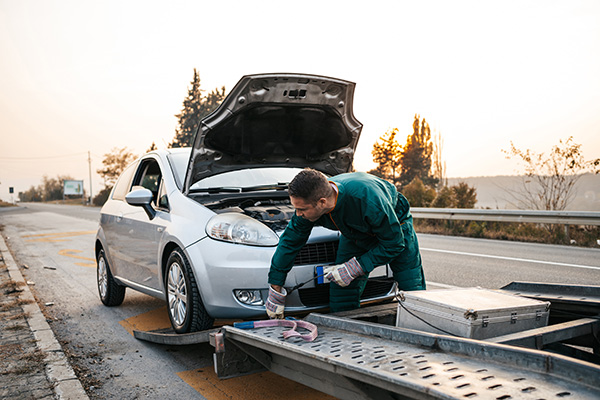
Driving a car that isn’t functioning properly can be nerve-wracking, but knowing when your vehicle has crossed the line from “needs service” to “needs a tow” is important for your safety. Whether it's strange noise, warning lights or handling issues, certain signs indicate that your car is no longer safe to drive. Ignoring these red flags can lead to more expensive repairs or even put you in dangerous situations on the road. So, how do you know when to call for a tow rather than drive to the nearest repair shop?
Warning Lights You Shouldn’t Ignore
Modern vehicles are equipped with dashboard warning lights designed to alert you to potential problems. While some lights, like the low fuel indicator, are not urgent, others are critical to your car’s safety and performance. The check engine light is one of the most common warning signs, and while it doesn't always mean your car is about to break down, it’s important to take it seriously. If the check engine light is flashing, it signals an urgent issue that could damage your engine if you continue driving. In this case, pulling over and arranging for a tow could prevent further damage.
Similarly, brake warning lights, battery warnings, or transmission alerts should never be ignored. If you see any of these lights on your dashboard, it’s time to stop driving and call for professional help.
Strange Noises Coming from the Engine or Brakes
Noises can tell you a lot about the health of your vehicle. If you hear knocking, clunking, or grinding sounds coming from under the hood, it’s likely a sign of engine trouble. Driving with an engine that’s making strange noises can lead to severe damage, and in the worst-case scenario, your car would stall on the road.
Brakes making grinding or squealing sounds are another major warning sign. Worn-out brakes mean less stopping power, and that’s something you don’t want to risk. If your brakes are failing, don’t attempt to keep driving—call for a tow to prevent putting yourself and others at risk.
Steering or Handling Problems
Is your car pulling to one side or feeling unusually hard to control? Steering or handling issues can be dangerous, especially at high speeds. If your car pulls sharply in one direction, it could be a problem with your tires, suspension, or alignment. Difficulty steering can also indicate low power steering fluid or issues with the steering mechanism itself. These are not issues to take lightly, as losing control of your vehicle on the road could lead to an accident.
When your car’s handling feels off or becomes harder to steer, it's safer to call for a tow rather than continue driving and risk losing control.
Fluid Leaks and Overheating
Fluids are essential for your car’s operation, and any sign of a leak should be a cause for concern. Whether it's oil, coolant, transmission fluid, or brake fluid, losing any of these could result in serious damage or even leave you stranded. If you notice puddles of fluid under your car, especially after it’s been parked for a while, it’s time to investigate.
Overheating is another red flag that your car isn’t safe to drive. Stop driving immediately if you notice steam coming from under the hood or your temperature gauge is climbing into the red zone. Driving with an overheating engine can lead to a blown head gasket or severe engine damage. Instead, pull over and arrange a tow to the nearest repair shop to avoid worsening the problem.
Unusual Vibrations or Shaking
Feeling vibrations in your car while driving is a clear indication that something is off. If your car shakes violently, especially at higher speeds, it’s likely due to a tire, suspension, or wheel alignment issue. Worn-out or damaged tires can cause dangerous blowouts, and driving on a faulty suspension can lead to loss of control.
If your car shakes when braking, it could be a sign of warped rotors or worn brake pads, both of which are serious issues that can compromise your safety. If your car is vibrating excessively, it’s better to call for a tow rather than risk continuing your journey in a potentially unsafe vehicle.
When Should You Call for a Tow
Ultimately, it’s better to err on the side of caution. If your car is showing any signs of serious trouble—whether it’s dashboard warnings, strange noises, handling issues, fluid leaks, or overheating—it’s time to call for a tow. Driving a vehicle with any of these symptoms puts you at risk of breakdowns, accidents, and further damage to your car.
Don’t wait for a small issue to turn into a big, expensive problem. Calling for a tow might seem like a hassle, but it’s a small price to pay to ensure your safety and keep your car in good working order.
When in doubt, tow it out! At Extreme Auto Repair, we understand how important your safety is. If your car isn’t running right, don’t risk it. Call us for reliable towing and expert repair services. Schedule your visit with us today and get back on the road safely!